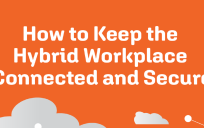Last Friday was the Social Media Forum#DCCSMF.
It was very well attended with over 70 people from across the council and partner organisations. It went very well, a few technical and timing issues but nothing major. Everyone wants more but better next time…so an interesting challenge.
Even the Head of our Press Office attended and found it valuable…
Mike Bomford
Overall I couldn’t be happier with how it went…I’ve included the presentations from the day below.
I was also very pleased with the action on the hashtag #DCCSMF – my expectation was that only a few people would participate but it surprised me…It was also a bit unfamiliar for some to do this within a formal council meeting and I did receive some feedback, where some people thought it was rude that people were looking down at their phones…however I had given people permission at the start, but a cultural challenge nonetheless.
Kelly Doonan
and we even had people who couldn’t attend joining in the discussion.
Sgt Gary Watts
Presentations…
Welcome and Introduction
Open and Linked Data
QR codes
Social Media Campaigns
FOI and twitter
The internal use of Social networking tools
Nurturing Online Communities
Crisis Communications
Social Media Risk Assessment
And a copy of the Draft Risk Assessment
Summary of the afternoon discussion sessions.
Not all received as of today, so i’ll add the others in when available:
Crisis Communications
Areas discussed were more general:
- How we got started
- How we got/get permission to tweet/FB at will! “But what about sign off?!” there is none….
- Start doing it – better to apologise after than just keep waiting to be allowed to begin
- What’s the resource requirement – and what about in a crisis? 24h nature
- How do you get followers – and that followers are not the be all and end all…Content is king
- RT is the aim – how far does your tweet actually go?
- How do you make a judgement call on what to respond to
- Management tools such as hootsuite and tweetdeck for keeping an eye on the conversation
- Peaks and troughs – and how to manage them
- The power of hashtags – getting in there early and first, identifying with a prefix e.g. #CCxxxx for Cornwall Council
In the future it would be useful to talk about some of the toolkits that we all use to manage the social media elements and some of the more practical elements for people just embarking on the social media journey.
Open Data
The main point to come out of the open data discussion was the potential conflict between open data and ‘control’ of communications, and the reputation issues that could follow. Some suggested that if we didn’t like the press that would follow a release of data, then we should change the way we work rather than suppress the data.
Also discussed was the different ‘levels’ of data:
1) the simple stuff – officers’ salaries, organisational structures etc. The FoI related stuff.
2) useful data that we could put in to the public domain and see what people did with it – accident locations, pot hole enquiries, timetables etc.
3) the difficult stuff – making our systems open and exposing the raw data – with the obvious data protection measures.
Internal Social Networking
There is a lot of nerves around FOI despite it not being an issue
People are looking for critical mass and one tool to rule them all
Concern around signal to noise ratios especially if using multiple comms channels
Top quote “people are reluctant to be interesting online”
Discussion of Devon learning Network as an internal social platform
We actually need an extranet as DCC fractures into partnerships
Social Media Risk Assessment
Risk is linked to culture of the organisation
Finding the balance between those interested in social but not trusted and those trusted but not interested
Comms interested in risk to reputation and ICT interested in Risk to systems and information
How can you harness and manage the energy and innovation as well as the risk
Provide a training package “passport” approach to support and mentor people through the learning process
Filed under: Events Tagged: #DCCSMF, crisis communications, FOI, internal social networking, linked data, online communities, open data, risk, risk assessment, social media forum, twitter
![]()




Leave a Reply
You must be logged in to post a comment.